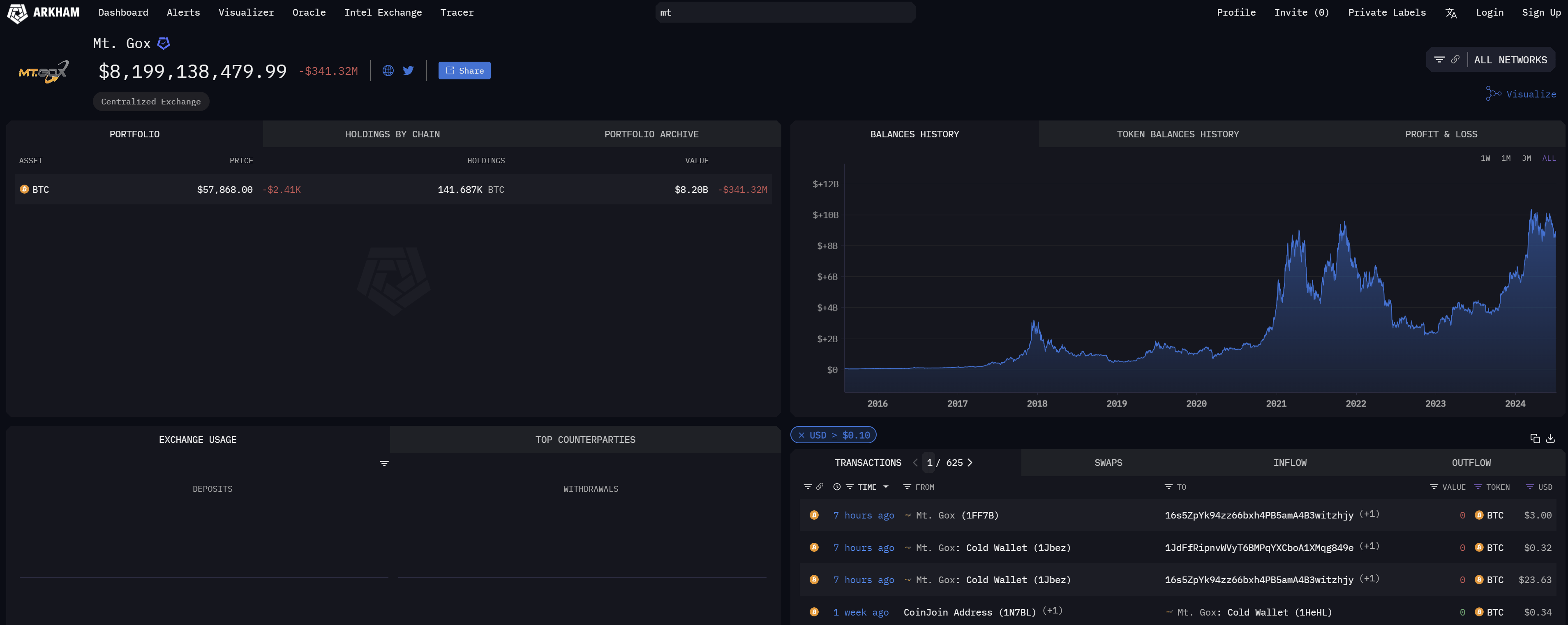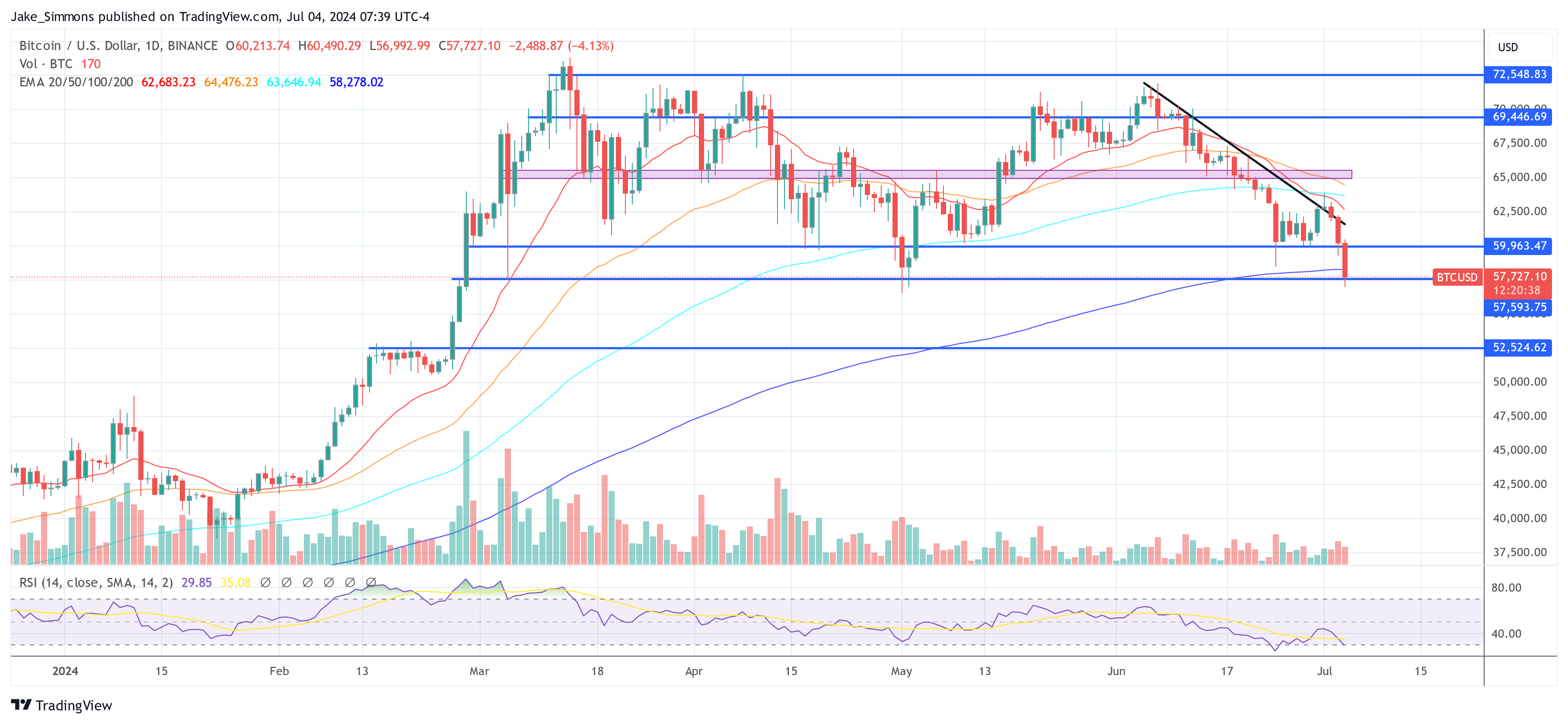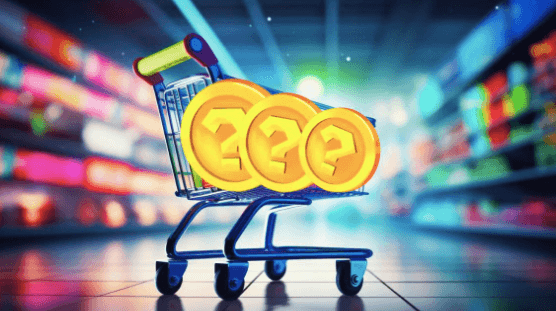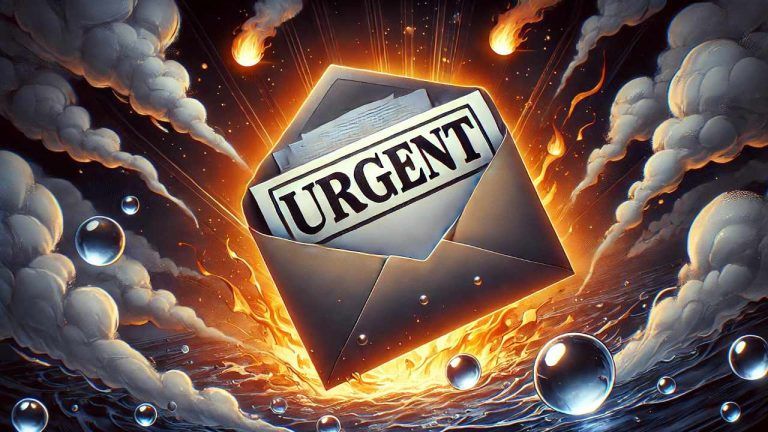According to data from Arkham Intel, Mt. Gox has initiated the process of repaying creditors by transferring a nominal amount of Bitcoin to one of the designated exchanges. This development follows months of speculation and planning concerning the disbursement of approximately $8.2 billion in Bitcoin owed to creditors of the defunct exchange.
Are Mt. Gox Bitcoin Repayments Beginning?
Early today, three wallets historically linked to Mt. Gox executed three transactions. The most significant of these involved the transfer of $24 in Bitcoin to a wallet which then proceeded to send these funds to Bitbank’s hot wallet. Bitbank, listed as one of the exchanges authorized to facilitate repayments, alongside Kraken, Bitstamp, SBI VC Trade, and Bitgo, is set to make these funds available to its customers within a timeframe extending up to 90 days from receipt.
However, there is some uncertainty surrounding these transactions, as the funds were not moved directly from the primary Mt. Gox wallets. Observers speculate whether this activity could be a preliminary test ahead of larger transfers intended for creditor repayment. The Mt. Gox Rehabilitation Trustee has previously indicated that the repayment process was scheduled to commence from the beginning of July, although specific dates for the transfers have not been disclosed publicly.
The other two transactions, one transfer of BTC worth $3.00 and another worth $0.32, was transferred to a new wallet.

This subtle movement of funds occurs amidst a turbulent period for Bitcoin, which has seen its price plummet by more than 20% since reaching $72,000, now hovering around $57,700.
What To Expect
Peter Chung, Head of Research at Presto Research, recently provided insights into the broader implications of the Mt. Gox repayments. He outlined the expected dynamics between Bitcoin (BTC) and Bitcoin Cash (BCH), predicting significant trading opportunities.
“The Mt. Gox’s Rehabilitation Trustee plans to distribute multi-billion dollars worth of BTCs and BCHs to the Mt. Gox creditors between July 1st and October 31st, 2024. This will likely alter supply/demand dynamics in BTC and BCH during this four-month period, potentially opening up a pair trading opportunity,” he stated.
Chung emphasized the disparate impacts on BTC and BCH: “Our analysis shows that the selling pressure for BCH will be four times larger than for BTC – i.e., 24% of the daily trading value for BCH vs. 6% of the daily trading value for BTC. This differential reflects varying investor bases, with BCH’s being considerably weaker and more likely to sell off holdings.”
He advised traders on potential strategies: “Long BTC perpetuals paired with short BCH perpetuals is the most efficient market-neutral way to express this view, barring funding rate risk.” For those concerned about volatile funding rates, Chung recommended exploring “other approaches, such as short-term futures or borrowing BCH in the spot market.”
At press time, BTC traded at $57,727.


 3 months ago
37
3 months ago
37









 English (US) ·
English (US) ·